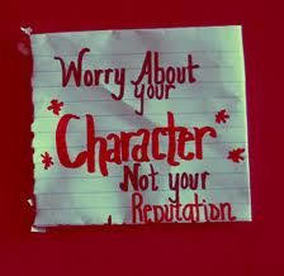|
I had finished my series of blog posts on 'The Reliable Musician' - the skills and qualities that musicians need (aside from playing) to get on well when playing with other people. However, a few conversations with people about how we can actually 'teach' or pass on these skills have prompted me to write a bit more. The qualities and habits I've written about have been described by various people as 'common sense' but also as 'unwritten rules' or 'unspoken agreements' - how do we encourage our students and the other musicians we come in contact with to behave in these helpful ways?
I suppose writing a series of blog posts was part of my attempt to explain the behaviours that I think make for a good, reliable musician - behaviours that I've seen the positive results of (and the problems that the opposite can cause). I can only hope that people visit my blog and/ or see them pop up on social media and find them useful. If there's a sense that these are some sort of secret, hidden rules that only (some) musicians know about though, maybe we need to state them more clearly. We can talk to our students about these things - we don't need to present them with a list of rules for going to rehearsals, but maybe if it's the first time they've joined an ensemble, there's no harm in reminding them that they need to take a pencil, might need a music stand etc. It's worth us talking about our own rehearsals/ playing work and how we prepare for these. We can model good behaviour by responding to their enquiries promptly and talking about/ demonstrating how we work on the music we need to practise. We can encourage good habits by stating our expectations of our students and ensemble members - if we're arranging an event we can give out information sheets, or emails, reinforced by verbal instructions if needed, about what people need to bring and how early they need to be there. We can give clear directions, such as needing to respond with availability by a certain date, or what people need to do if they can't make a rehearsal. We could talk more openly about the behaviours that make us want to work with people, and be less tolerant of the ones that don't. But it can be difficult to challenge someone's behaviour, especially if it's gone unchallenged for a long time. Sometimes musicians will be 'not invited back' if people find them unreliable, but often the link between the unreliability and the lack of future work isn't made clear - and how does anyone learn from that? Do we worry that people will be upset, or that they'll be angry and defensive if we tell them what the problem is? Musicians are renowned for worrying about their reputation - which is usually based on how 'good' they are, but perhaps they need to worry more about their character - taking this to be their habits and behaviours around working with other people. And if we get frustrated by the way people behave, then we need to think about the best ways to influence that behaviour and somehow teach/ explain/ demonstrate how their habits affect other people, and therefore inevitably themselves.
0 Comments
Your comment will be posted after it is approved.
Leave a Reply. |
Keep in touch
I have an email newsletter where I share my latest blog posts, news from the flute and wider musical world, my current projects, and things I've found that I think are interesting and useful and would love to share with you. Expect lots about music and education, plus the occasional dip into research, language, freelance life, gardening and other nice things. Sign up below! Archives
July 2019
Categories
All
|

 RSS Feed
RSS Feed
